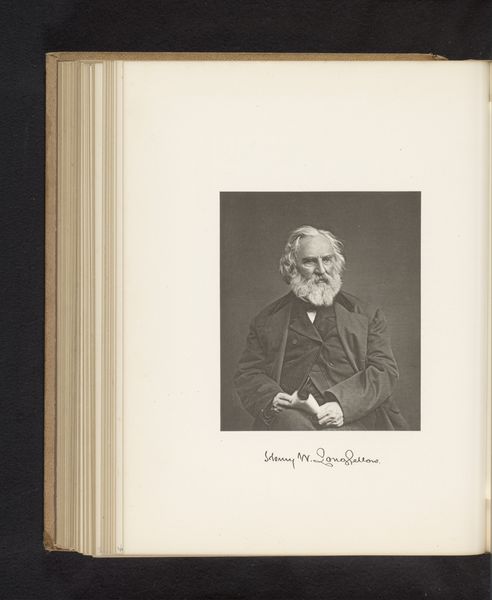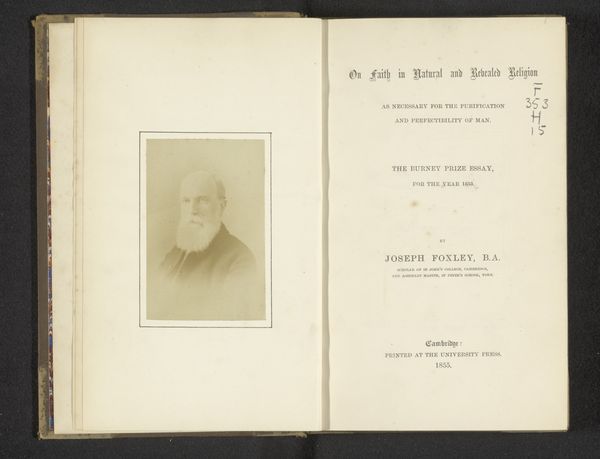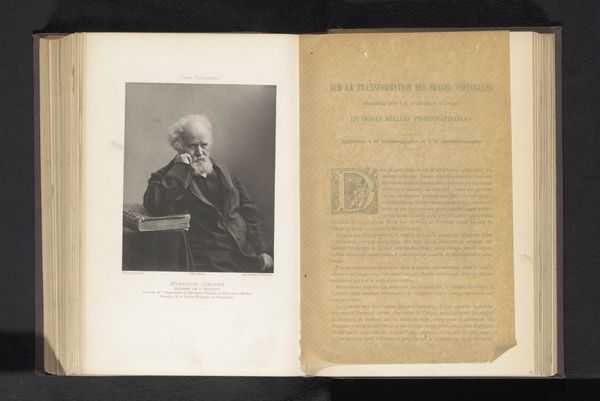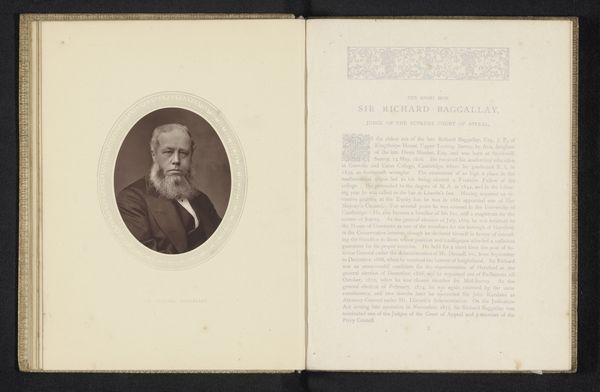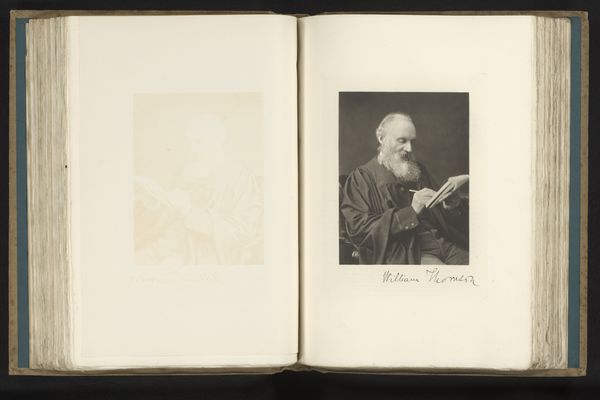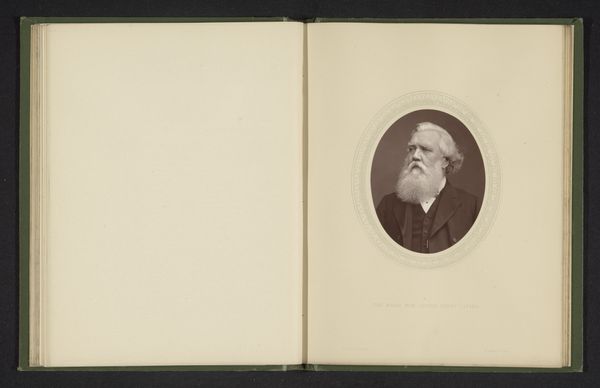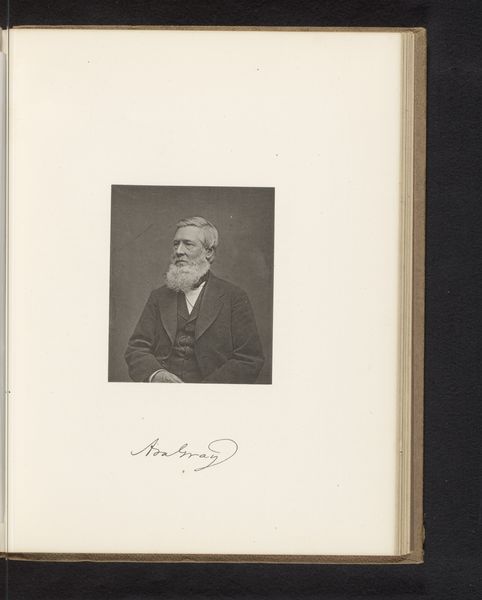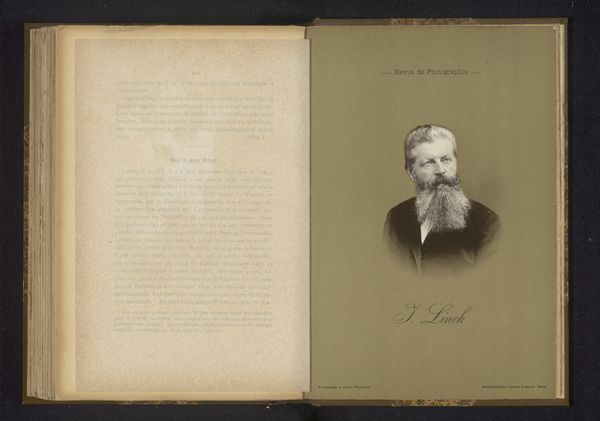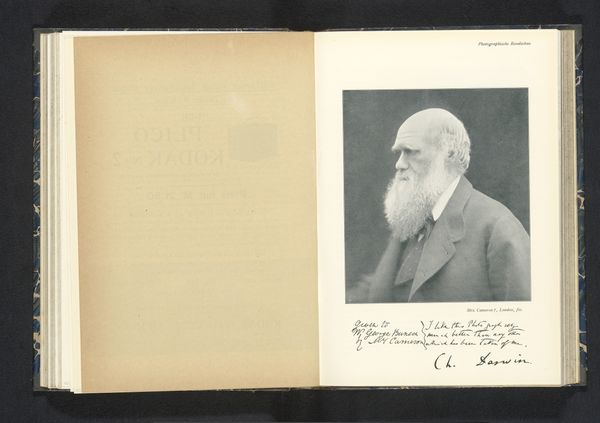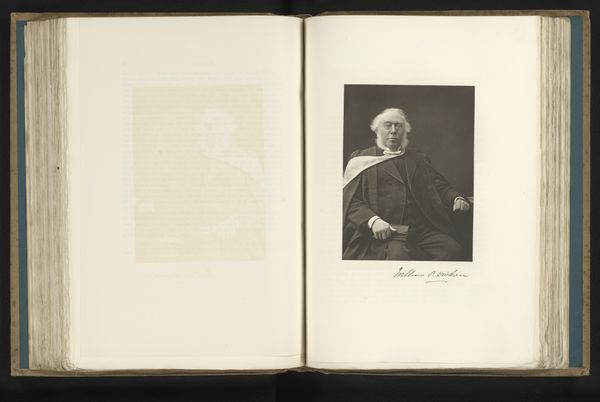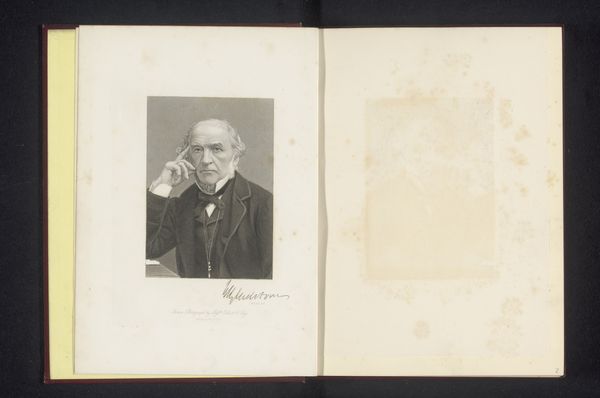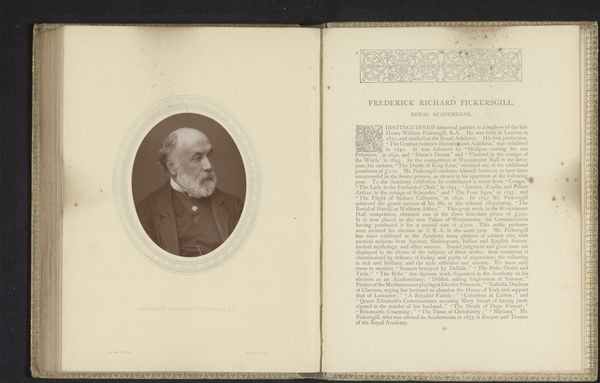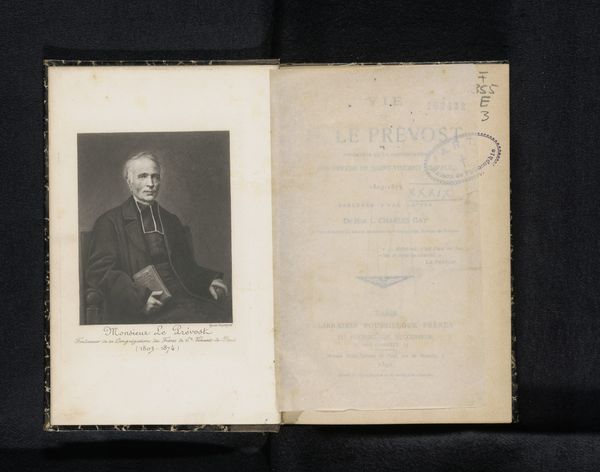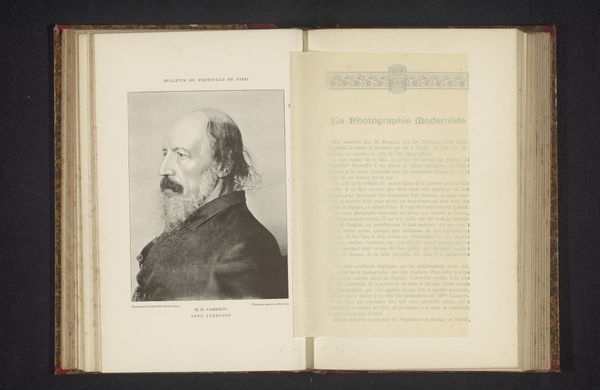
Portret van George Williams, oprichter van de Young Men's Christian Associations before 1895
0:00
0:00
print, photography, gelatin-silver-print
#
portrait
#
aged paper
#
homemade paper
#
paperlike
# print
#
sketch book
#
photography
#
personal sketchbook
#
hand-drawn typeface
#
fading type
#
gelatin-silver-print
#
thick font
#
sketchbook drawing
#
sketchbook art
Dimensions: height 113 mm, width 77 mm
Copyright: Rijks Museum: Open Domain
Editor: Here we have a gelatin-silver print of George Williams, the founder of the YMCA. It seems to be a portrait from before 1895, set within the pages of a book. There's a formal quality to the image, almost reverential. What do you see in this piece, considering its historical context? Curator: Well, the photographic portrait in itself was becoming increasingly accessible at this time, shaping how individuals and institutions wanted to present themselves publicly. This image, presented within the context of a YMCA report, immediately points to the institutional effort to cement Williams’ legacy and the organization’s values. Note the inscription beneath the photograph. Editor: It reads, "Yours very truly, George Williams". So it's his signature! Do you think that inclusion humanizes him or further solidifies his image as a founding father? Curator: It does both, doesn't it? It creates a personal connection, suggesting humility with that “Yours very truly,” while also validating the document and mission with his personal stamp. Consider where this book might have circulated - likely to donors, members, or other influential figures. The image serves as a sort of branding, doesn’t it? Editor: Branding, that's interesting! So, beyond a simple portrait, this photograph acts as a tool for the YMCA to establish credibility and project a specific image? Curator: Precisely. The inclusion within the report elevates its message and imbues it with Williams’ perceived virtues. We should also consider how the very act of creating and circulating this image helps define what those virtues should be within this community. Editor: I never thought about a portrait having that kind of social work to do. It's more than just a face, it's a statement. Curator: Exactly. And these historical artifacts, seemingly simple on the surface, offer us powerful insight into the cultural forces at play in the late 19th century.
Comments
No comments
Be the first to comment and join the conversation on the ultimate creative platform.
